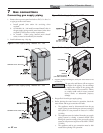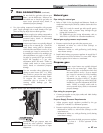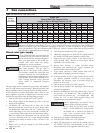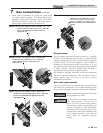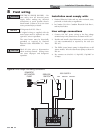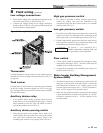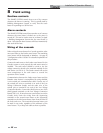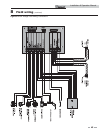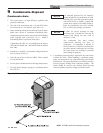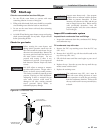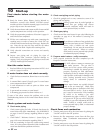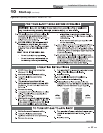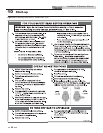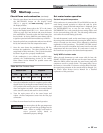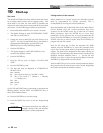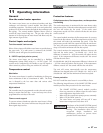
Installation & Operation Manual
50
9 Condensate disposal
Condensate drain
1. This water heater is a high efficiency appliance that
produces condensate.
2. The side of the water heater has a 1/2 inch PVC union
for connection of a 1/2 inch PVC pipe (FIG. 9-1).
3. Slope condensate tubing down and away from the water
heater into a drain or condensate neutralizing filter.
Condensate from the Armor water heater will be slightly
acidic (typically with a pH from 3 to 5). Install a
neutralizing filter if required by local codes.
A Neutralizer Kit (FIG. 9-1) is available from the factory
(KIT3087 for Models 150 - 500 and KIT3046 for Models
600 - 800).
4. Install the 1/2 inch PVC tee assembly (shipped with the
unit) as shown in FIG. 9-1.
5. Leave the top of the 1/2 inch tee OPEN. This is needed
as a vacuum break.
6. Do not expose condensate line to freezing temperatures.
7. Use only plastic tubing or piping as a condensate drain
line (FIG. 9-1).
Use materials approved by the authority
having jurisdiction. In the absence of other
authority, PVC and CPVC pipe must comply
with ASTM D1785 or D2845. Cement and
primer must comply with ASME D2564 or
F493. For Canada use CSA or ULC certified
PVC or CPVC pipe, fittings, and cement.
8. A condensate removal pump is required if the water heater
is below the drain. When installing a condensate pump,
select one approved for use with condensing water heaters
and furnaces. The pump should have an overflow switch to
prevent property damage from condensate spillage. The
switch should be wired to the auxiliary device proving
switch terminals on the low voltage connection board.
NOTICE
NOTICE
To allow for proper drainage on large
horizontal runs, a second line vent may be
required and tubing size may need to
increase to 1 inch.
The condensate line must remain
unobstructed, allowing free flow of
condensate. If condensate is allowed to
freeze in the line or if the line is obstructed in
any other manner, condensate can exit from
the water heater tee, resulting in potential
water damage to property.
Figure 9-1 Condensate Disposal
NOTE: KIT3087 shown for illustration purposes.



